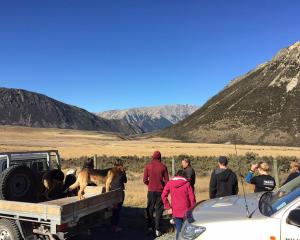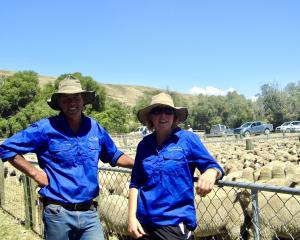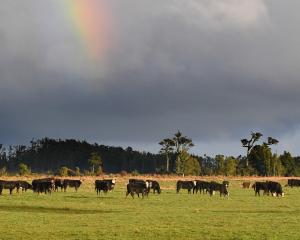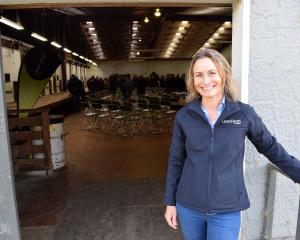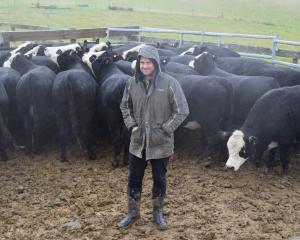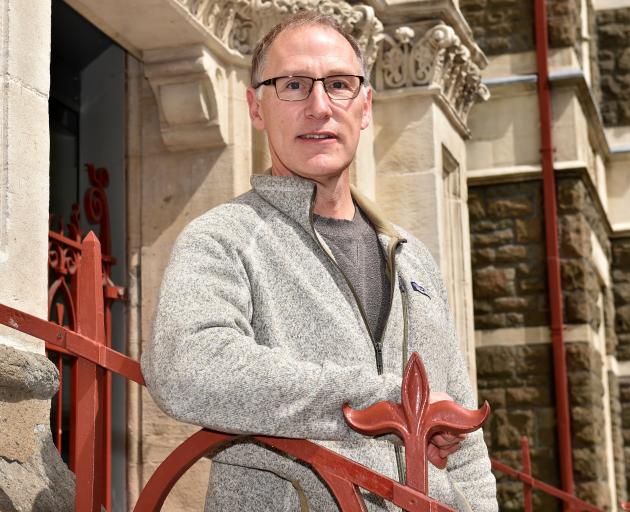
He's an international expert in pigs who has ended up living in Otago.
Dr Eric Neumann has an impressive list of credentials, having been involved in livestock production, aid and development projects, infectious disease management and research, controlled experimental trials, international project management and collaboration, government-sector biosecurity policy development, and one-health training around the world.
He is an adjunct associate professor of medicine and epidemiology at Massey University, and also holds positions as adjunct research associate professor at the University of Otago, Centre for International Public Health, and as affiliate Associate Professor of Veterinary Epidemiology, Iowa State University.
Based at East Taieri, the US-born veterinarian and epidemiologist owns Epi-Insight Ltd, an epidemiology consulting business with offices in New Zealand and the United States.
Projects were undertaken on behalf of international clients in biosecurity, animal health, livestock production, public policy aspects of animal disease management, and risk assessment related to trade in animals and animal products.
Dr Neumann, who grew up in Illinois and came from a farming background, undertook his veterinary studies at the University of Illinois.
It was the late 1980s when there was a big consolidation of the pig industry happening in the US, with fewer farmers and larger corporate farms.
While he came from more of a beef cattle background, he was picked up by several of the pig faculty and "just never looked back".
Always focused on commercial livestock, he spent some time consulting on his own before his largest client hired him.
Heartland Pork Enterprises was a start-up large commercial production company that started with no breeding sows and, within three years, had 65,000 sows raising 1.5million pigs a year.
For a young vet, it was a "really fun time" to be in that industry; things were happening and he probably initially had more responsibility than he was ready for, he recalled.
In the US, about 6.5million sows raised 110million pigs a year; he estimated about 80% of those sows were owned by about 50 parties. It was very concentrated and therefore vet services were specialised and concentrated.
After about 10 years, Dr Neumann got to the point where he felt he had gone as far as he could.
He joined the National Pork Board in Des Moines, Iowa, a levy organisation where he had a national role in developing programmes at the demand of the farmer members.
He spent about three years there and he learned the value of well-run associations. He was responsible for several million dollars of research investment every year which provided insight into how to turn farmers' needs into research priorities.
He was spending a fair amount of his time either with international folk or people in the US that had spent time overseas and returned home, and he became envious of that international experience.
So he decided it was a good time - including around family - to head overseas, and he also wanted to do a PhD.
Prior to that, he had always liked statistics and had a natural interest in populations and numbers and was probably doing epidemiology without knowing it, he recalled.
Looking around the world to see what he might be able to do, Dr Neumann eventually stumbled upon New Zealand.
It coincided that the pig industry was looking for some help, Massey at that time was looking for a pig vet on its faculty, and he also had the ability to do his PhD.
So the family - his wife and their three children - loaded up 10 suitcases in 2005 and headed to Palmerston North in a move that "turned out ok".
He spent about 10 years with the vet faculty as the pig specialist before he and his wife discussed what next.
Both liked it in New Zealand, although his wife had a strong pull to return to the US for family reasons. Ultimately, they elected to stay.
While at Massey, he led the "international development group" which has been involved in delivering One Health training and capacity building across south and east Asia since 2009.
Five years ago, Dr Neumann left Massey and set up Epi-Insight Ltd, an international consultancy in epidemiology, animal health, risk assessment and disease investigation.
About half his time was spent offshore doing aid development work, and the rest of his time was in New Zealand.
It suited him well; he liked project work, travel and agriculture and he was "having a lot of fun".
His core business remained around livestock diseases, particularly pigs, and he did work for both New Zealand Pork and Australian Pork Ltd.
When it came to the threat of African swine fever to New Zealand, Dr Neumann said the legal pork trade was a significant worry for both the industry and for himself - because of the "silent spread" issue.
New Zealand imported about 62% of its pork and ASF had been found in some countries from which New Zealand imported pig meat, including Belgium and Poland. But their status meant they were eligible to export to New Zealand.
About 100 premises in New Zealand were declared commercial piggeries, but there were 8000-12,000 sites with pigs on them.
There was also a strong culture of waste food feeding in the country. While that was "ok" if people followed the rules around waste feeding and feeding of meat products, it was a worry.
Once the disease hit China in 2018, it sparked worldwide concern and it had spread quite quickly and was now in South Korea, Timor-Leste and the Philippines.
There was a lot of informal traffic of live pigs on small boats between islands and informal trade in pig meat. Australia was "shaking in their boots", given the proximity of Timor-Leste.
Australia had about 250,000 sows, while there were about 30,000 in New Zealand.
Australia was in "crisis management" trying to figure out how to prepare for the disease, Dr Neumann said.
Pork products seized at the Australian border have tested positive for African swine fever virus.
The virus was very hardy in both meat and in the environment. It was "uniformly lethal" - there were no vaccines and no treatment and about 25% of the world's pigs were dead.
There was a "real risk" in New Zealand with the amount of product brought in, with the culture of backyard pig keeping, waste food feeding and the feral pig population, he said.
Dr Neumann believed products coming into New Zealand needed to be best treated in such a way as to effectively kill the virus - turning pork into hams would largely kill that virus.
He also supported paring down the definitions of eligible countries able to export pork to New Zealand, saying Belgium and Poland were sending hundreds of tonnes to New Zealand every month, typically in frozen form. He also believed legislation needed enacted for national registration of all livestock.
Clutha-Southland MP Hamish Walker has lodged a Members Bill in to the ballot at Parliament with the intention of strengthening New Zealand's biosecurity frontline and providing deterrence to those who jeopardised the primary sector by knowingly bringing in risk items.
It would ramp up the immediate fine to those caught "sneaking" risk items across the border from $400 to $1000, and by also giving biosecurity officers the ability to deport non-New Zealand citizens or residents who knowingly break the law by bringing in risk items, he said.


